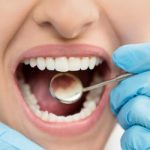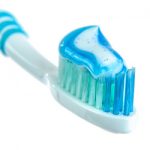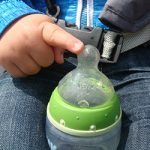Cavities & Toothaches
What Is Tooth Decay?

These destructive forces include frequent exposure to foods rich in sugar and carbohydrates. Soda, candy, ice cream—even milk—are common culprits. Left inside your mouth from non-brushing and flossing, these materials break down quickly, allowing bacteria to do their dirty work in the form of a harmful, colorless sticky substance called plaque.
The plaque works in concert with leftover food particles in your mouth to form harmful acids that destroy enamel and other tooth structures.
If cavities aren’t treated early enough, they can lead to more serious problems requiring treatments such as root canal therapy.
Preventing Cavities

Special sealants and varnishes can also be applied to stave off cavities from forming.
If you have any of the following symptoms, you may have a cavity:
- Unusual sensitivity to hot and cold water or foods.
- A localized pain in your tooth or near the gum line.
- Teeth that change color.
Baby Bottle Tooth Decay

If left untreated, this can lead to premature decay of your baby’s future primary teeth, which can later hamper the proper formation of permanent teeth.
One of the best ways to avoid baby bottle tooth decay is to not allow your baby to nurse on a bottle while going to sleep. Encouraging your toddler to drink from a cup as early as possible will also help stave off the problems associated with baby bottle tooth decay
Dental Emergencies
Our goal is to help you to minimize the risk of emergency treatment. This is why we commit a generous amont of time designing a Lifetime Treatment Plan that will help you to offset the possibility of unforseen pain or tooth breakage
Learn More
Toothaches
Simple toothaches can often be relieved by rinsing the mouth to clear it of debris and other matter. Sometimes, a toothache can be caused or aggravated by a piece of debris lodged between the tooth and another tooth. Avoid placing an aspirin between your tooth and gum to relieve pain, because the dissolving aspirin can actually harm your gum tissue.
Broken, Fractured, or Displaced Tooth
A broken, fractured or displaced tooth is usually not a cause for alarm, as long as decisive, quick action is taken.
If the tooth has been knocked out, try to place the tooth back in its socket while waiting to see your dentist.
First, rinse the mouth of any blood or other debris and place a cold cloth or compress on the cheek near the injury. This will keep down swelling.
If you cannot locate the tooth back in its socket, hold the dislocated tooth by the crown – not the root. Next, place it in a container of warm milk, saline or the victim’s own saliva and keep it in the solution until you arrive at the emergency room or dentist’s office.
For a fractured tooth, it is best to rinse with warm water and again, apply a cold pack or compress. Ibuprofen may be used to help keep down swelling.
If the tooth fracture is minor, the tooth can be sanded or if necessary, restored by the dentist if the pulp is not severely damaged.
If a child’s primary tooth has been loosened by an injury or an emerging permanent tooth, try getting the child to gently bite down on an apple or piece of caramel; in some cases, the tooth will easily separate from the gum.
